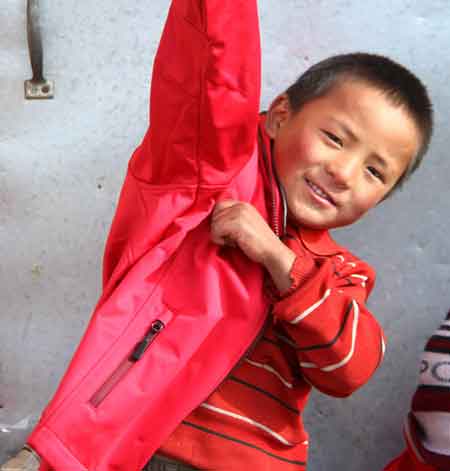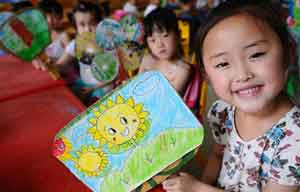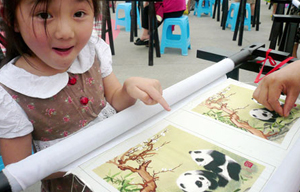We are what they wear
The clothes would usually retail for 900 yuan, but the final cost was 155 yuan, as the finished items were hooded jackets.
Children can wear the clothes in spring, autumn and winter. For those living in high altitude areas, they can also wear them in summer.
Chen Yan, a grade four primary student from Gansu province, wanted a camouflage jacket when he saw his classmate wearing one, but his mother couldn't afford it, so he picked dandelions deep in the mountains and sell them to buy the clothes.
"It's just like an office worker from Beijing saving their salary for a month to buy a Louis Vuitton bag. The coat is like a luxury for him. But it shouldn't be a luxury, it's necessity," Wang says.
Two weeks after Wardrobe of Love registered under the China Youth Development Foundation, the Red Cross Society of China "Guo Meimei incident" broke out, casting doubt on the honesty of charity contributions.
"It was at that moment that I knew where to start - a transparent system," he says.
Wardrobe of Love updates its accounts on its micro blog every Tuesday, including each donor's name and transfer date. Donors can search which school received their money on the charity's website.
Children who receive the clothes have to sign feedback forms. As for children from ethnic groups who can't write their names in Chinese, they can use inked thumbprints, and teachers or volunteers also have to sign.
Volunteers will take photos of children with their new clothes and mail the pictures later. For many children, it's their first photo.




















